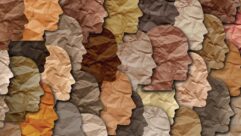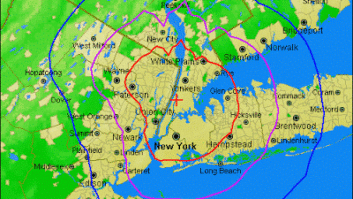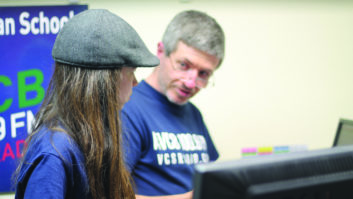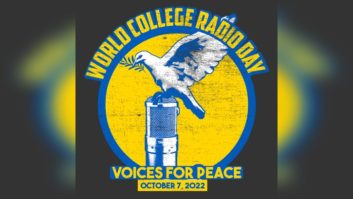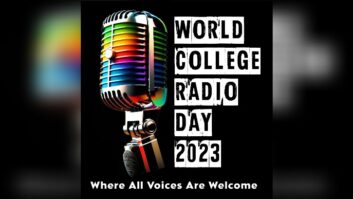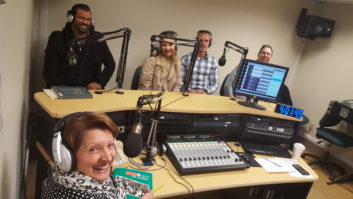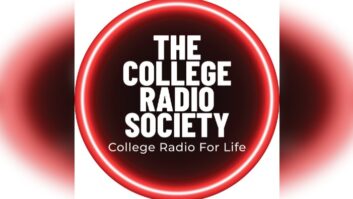Radio World continues our special series about preserving the history of radio, in conjunction with the Library of Congress’ Radio Preservation Task Force (http://radiopreservation.org).
“They’re just a bunch of kids!”

Tim Brooks
That’s what the sales manager of a New Hampshire radio station told local businessmen when he discovered that he was losing accounts to student salesmen from the nearby college station. Some faculty weren’t happy with the station either, considering it a mere “radio school” in their midst, and not promoting their vision of academia. One seriously suggested that rock’n’roll be allowed on the station only if accompanied by “commentary and discussion.”
Both views seem to miss the point, and the value, of college radio.
The history of this particular station is explored in depth in my book “College Radio Days,” and it reveals some interesting facts about an underappreciated segment of broadcasting.
INSIDE MEDIA
For many years the stations, WDCR(AM) and WFRD(FM) at Dartmouth College, were commercial and run entirely by students.
The students created a climate of professionalism and innovation that did indeed make the stations a formidable competitor in the small northern New England market. But they also created an unusual learning environment, one that helped mold generations of media and business leaders of the future.
This was far from just a “radio school.” According to data collected for the book, during the station’s entire 75-year history (the original campus station signed on in 1941), only 2.4 percent of its student leaders went on to careers in radio. Another 11.7 percent pursued careers in other media, such as television, motion pictures, recording or publishing. More than 85 percent went on to non-media careers, such as law, finance, advertising, marketing and computer sciences.
Yet among the many alumni who were interviewed, nearly all gave credit to this early “inside media” experience as helping prepare them for their later careers, whatever those careers might have been. They said they learned leadership skills, speaking skills, entrepreneurship, sales, technical skills and “how to run a business.”
Some were quite eloquent about it. “One of the best experiences of my life,” said one. Said others, “I learned as much [at the station] as in any of the academic buildings,” “Of tremendous value to me,” and quite simply, “I owe my career to Dartmouth Broadcasting.”
A current U.S. senator, a station newsman during his college days, said, “It taught me how to ask the right questions.”

Credit: Courtesy Jennifer Waits, Radio Survivor
COLLEGE ARCHIVES
Besides producing leaders in many fields, the station produced a great deal of important and interesting programming, some of which is preserved in the college archives. That is one focus of the Radio Preservation Task Force of the Library of Congress, which aims to identify, and encourage the preservation of, both commercial and non-commercial radio archives.
What survives from those 75 years of broadcasting at this one student station? Besides music programming, the station produced many thousands of hours of programs about sports, social issues and contemporary culture. It was also a laboratory for what might be termed periodic waves of student creativity.
Every few years a new group of students would arrive, who would use the stations as a platform for various forms of dramatic and comedic expression, and some of the shows they created are quite interesting. In the 1950s, it was a young Buck Henry, later a major Hollywood writer/actor/director. Don Hyatt, the lauded NBC producer, produced many shows as a student. Later there were several improv comedy shows, and also scripted series including a clever scripted comedy/horror anthology called “Tales for the Midnight Hour” that holds up well today.
Perhaps the most lasting contribution was made by the station’s very active news department, which conducted interviews with all sorts of literary and political luminaries as they passed through the campus. (New Hampshire, remember, is home to the first-in-the-nation presidential primary; practically every major national candidate shows up there, eager to speak into any microphone available.)
In the archives are interviews with Malcolm X, just two weeks before his assassination in 1965; segregationist Governor George Wallace, whose appearance sparked a riot; Henry Miller discussing “The Tropic of Cancer”; filmmaker Chris Miller, both as a recent graduate and years later as producer of the movie “Animal House”; Nobel prize winner Dr. William Shockley, defending the controversial theory of eugenics (an interview that was suppressed at the time for fear of stirring racial strife on campus); Cold warrior Alger Hiss; poet Robert Frost; Miriam Makeba; Dave Brubeck; and hundreds of others.
Some of the subjects are not famous but nevertheless tell us much about their times. Six African-American students talk about their experiences in the years after the college began to recruit minorities in significant numbers. Young women talk about life on a mostly male campus immediately after Dartmouth first began admitting women in 1972. And so on.
Virtually all of this audio survives, but it’s on decaying cassettes and reel-to-reel tapes that have not yet been digitized. And this trove was created by just one of the estimated 1,500 college stations located across the United States.
College radio stations serve as more than just “radio schools.” Besides providing a hands-on introduction to media for generations of future American leaders, they have produced a wealth of programming and preserved a great deal of important audio history. It is the hope and mission of the task force to locate and preserve this audio heritage before it disappears.
Tim Brooks is a longtime network TV executive and author of eight books about media history, including “College Radio Days” (2013). He is an advisor to the Radio Preservation Task Force and, long ago, was a student director of his college radio station.




